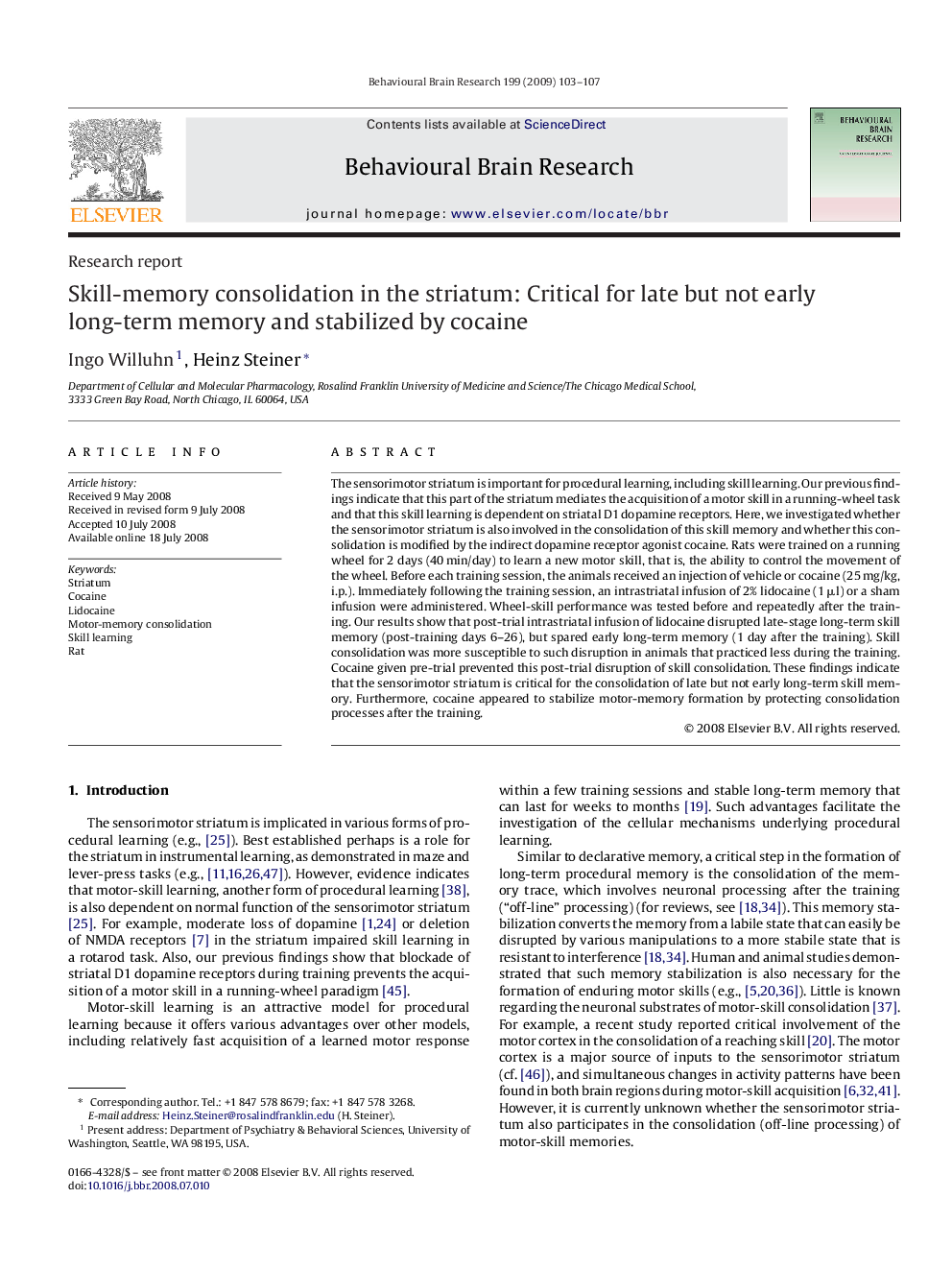| Article ID | Journal | Published Year | Pages | File Type |
|---|---|---|---|---|
| 4314848 | Behavioural Brain Research | 2009 | 5 Pages |
Abstract
The sensorimotor striatum is important for procedural learning, including skill learning. Our previous findings indicate that this part of the striatum mediates the acquisition of a motor skill in a running-wheel task and that this skill learning is dependent on striatal D1 dopamine receptors. Here, we investigated whether the sensorimotor striatum is also involved in the consolidation of this skill memory and whether this consolidation is modified by the indirect dopamine receptor agonist cocaine. Rats were trained on a running wheel for 2 days (40 min/day) to learn a new motor skill, that is, the ability to control the movement of the wheel. Before each training session, the animals received an injection of vehicle or cocaine (25 mg/kg, i.p.). Immediately following the training session, an intrastriatal infusion of 2% lidocaine (1 μl) or a sham infusion were administered. Wheel-skill performance was tested before and repeatedly after the training. Our results show that post-trial intrastriatal infusion of lidocaine disrupted late-stage long-term skill memory (post-training days 6-26), but spared early long-term memory (1 day after the training). Skill consolidation was more susceptible to such disruption in animals that practiced less during the training. Cocaine given pre-trial prevented this post-trial disruption of skill consolidation. These findings indicate that the sensorimotor striatum is critical for the consolidation of late but not early long-term skill memory. Furthermore, cocaine appeared to stabilize motor-memory formation by protecting consolidation processes after the training.
Related Topics
Life Sciences
Neuroscience
Behavioral Neuroscience
Authors
Ingo Willuhn, Heinz Steiner,
